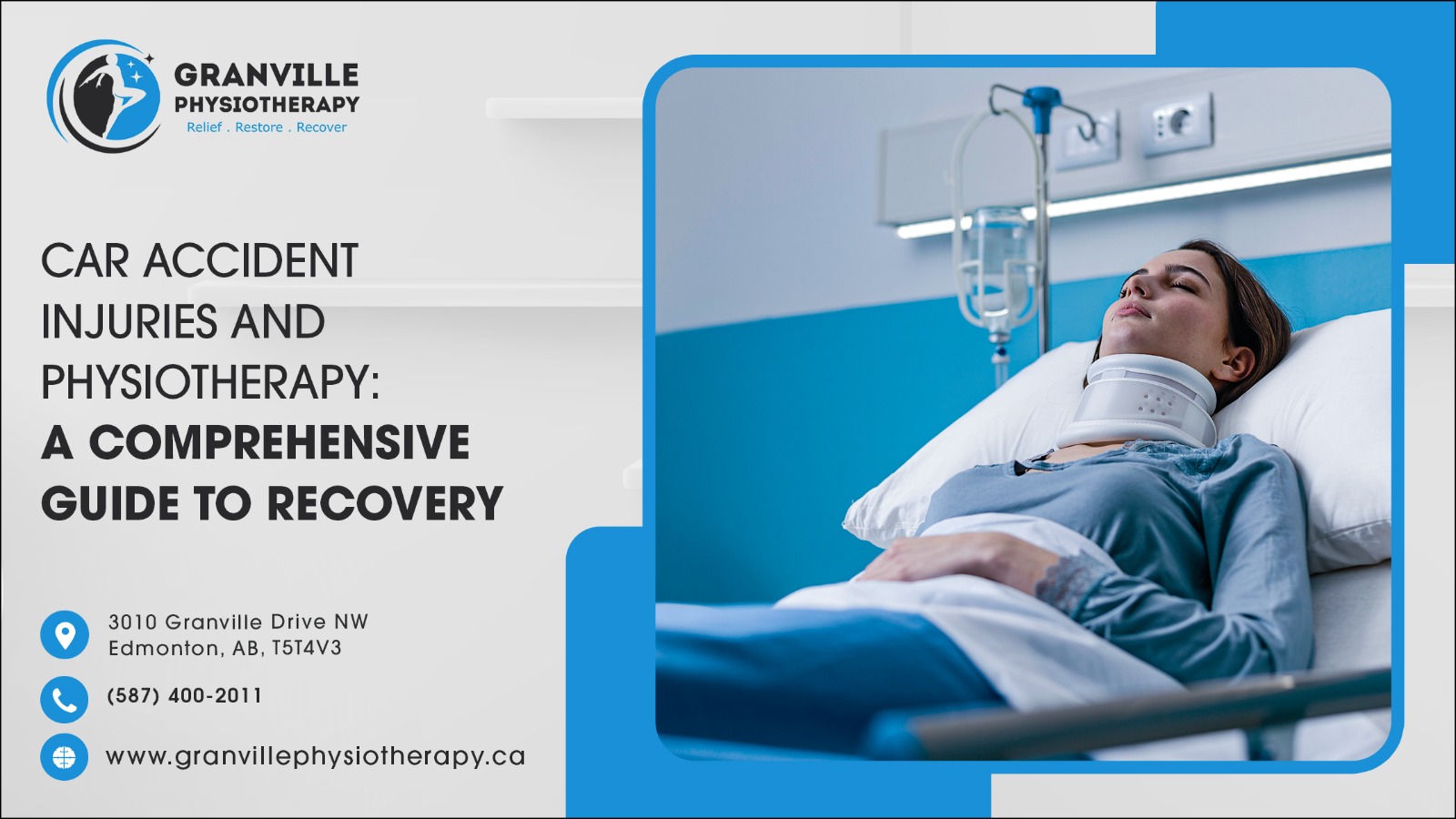Automobile accidents are one of the most common causes of injuries worldwide, leading to many physical health issues ranging from minor abrasions and sprains to more severe injuries like fractures, dislocations, and traumatic brain injuries. These injuries often occur due to the abrupt, forceful impact typical in car accidents, which can inflict harm on the body’s muscles, bones, nerves, and other soft tissues.
Some of the most frequently observed car accident injuries include whiplash, concussions, back injuries, and fractures. Each of these injuries could significantly affect an individual’s daily life, restrict their mobility, lead to chronic pain, and possibly result in long-term disabilities if not properly managed and treated. The severity and implications of these injuries underscore the need for an effective recovery plan post-accident.
The Role of Physiotherapy in Car Accident Recovery
In the aftermath of a car accident, physiotherapy plays an invaluable role in aiding recovery. At Granville Physiotherapy Edmonton, patients can avail of specialized Motor Vehicle Accident (MVA) physiotherapy services. These are designed to help injured individuals restore function, reduce pain, and regain the quality of life that may have been compromised due to the accident.
The initial focus of car accident physiotherapy lies in managing inflammation and controlling pain. This typically involves modalities like cryotherapy (use of ice), thermotherapy (use of heat), ultrasound therapy, and Transcutaneous Electrical Nerve Stimulation (TENS). As the healing process advances, the emphasis gradually shifts towards the restoration of mobility, strength, and function, facilitated by a series of customized exercises designed to improve flexibility, strength, balance, and coordination.
Specific Techniques Used in Car Accident Physiotherapy
Car accident physiotherapy employs a diverse range of evidence-based techniques. Each therapeutic approach is tailored to meet the unique recovery needs of the patient. Manual therapy, one of the cornerstones of physiotherapy, involves hands-on techniques to manipulate tissues and joints. Therapeutic exercises aim to restore function, while patient education encourages self-management strategies for sustainable recovery.
For example, in treating a prevalent car accident injury like whiplash, physiotherapy may include exercises designed to restore neck mobility and strength, postural corrections, and techniques to manage pain and alleviate stiffness.
The Benefits of Early Physiotherapy Intervention After a Car Accident
Research indicates that early intervention with MVA physiotherapy after a car accident can enhance recovery outcomes. Starting physiotherapy soon after an accident can help to control pain, minimize inflammation, prevent the development of chronic pain, and speed up the return to regular activities. At Granville Physiotherapy Edmonton, the team is well-equipped to provide early and effective intervention for car accident injuries.
What are the aspects covered under Car Accident Physiotherapy?
Car accident physiotherapy is a comprehensive and holistic approach to recovery that covers a wide range of aspects:
- Strengthening: Following an accident, the injured area often experiences weakness. Targeted strengthening exercises are used to rebuild muscle strength and endurance, which are critical for resuming daily activities.
- Balance and Coordination Training: Some injuries can disrupt a person’s balance and coordination. MVA Physiotherapy includes balance training and coordination activities to restore normal function and prevent falls or further injuries.
- Vestibular Rehabilitation: Car accidents can lead to vestibular disorders, which cause symptoms like dizziness, vertigo, and balance problems. Vestibular rehabilitation is a form of physiotherapy designed to alleviate these symptoms.
- Functional Retraining: Depending on the severity of the injuries, individuals may need to relearn basic daily activities such as walking, lifting, bending, or sitting. Physiotherapists use functional retraining to help patients regain these skills in a safe, effective manner.
- Patient Education: Physiotherapists educate patients about their injuries, the recovery process, and ways to prevent future injuries. This education might include guidance on proper body mechanics, posture, and home exercises.
- Long-term Health and Wellness: Beyond the immediate recovery from the accident, physiotherapy also focuses on promoting long-term health and wellness. This might involve lifestyle advice, strategies for managing chronic pain, and fitness planning to help individuals return to their pre-accident activity levels.
- Psychological Support: The impact of a car accident isn’t just physical. Dealing with pain, injury, and disrupted life can lead to emotional stress and mental health challenges. Many physiotherapists are trained to recognize these issues and can provide support or refer patients to appropriate mental health professionals.
Each of these aspects is vital in ensuring a full and comprehensive recovery following a car accident. By addressing all of these areas, car accident physiotherapy aids in returning patients to their normal lives and activities as quickly and safely as possible.
The Journey Toward Recovery with Physiotherapy
The journey of recovery from car accident physiotherapy Edmonton at Granville Physiotherapy is patient-centered and goal-oriented. The physiotherapy team works closely with each patient to set realistic recovery goals and design a personalized treatment plan that fits their needs and lifestyle. Regular progress assessments ensure that the treatment plan remains effective and is adjusted as needed.
By leveraging a holistic approach to care, physiotherapy helps car accident victims navigate their path to recovery, restoring their function, mobility, and quality of life.
